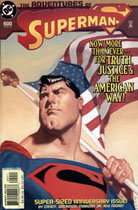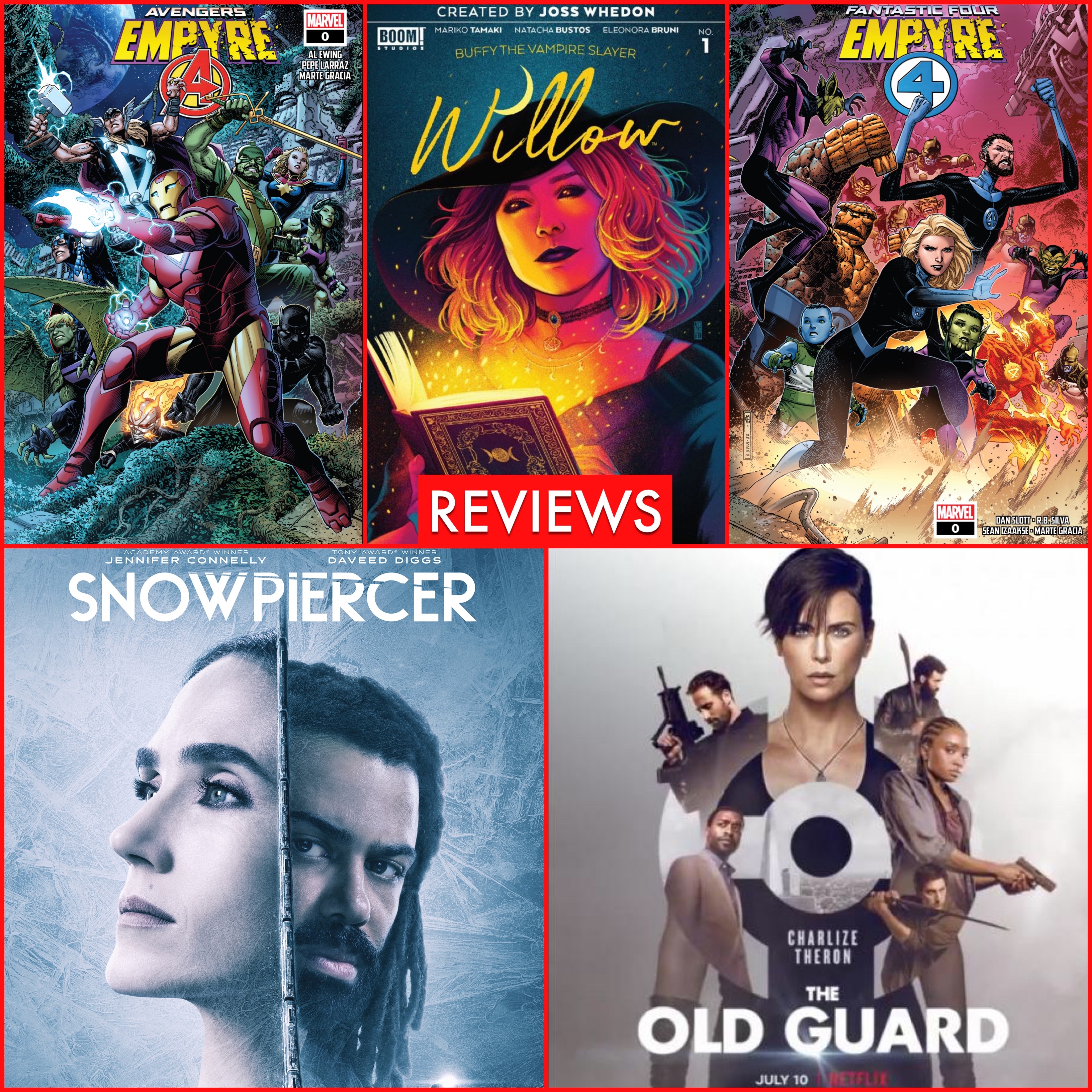|
 |
WAITING
FOR TOMMY: JOE CASEY
By Richard
Johnston
Joe Casey.
You love him or loathe him. No, you do. Look I don't care if
you're sitting there saying "I'm happy, either way", you're
lying to me, your friends and more importantly, yourself. You
love him or loathe him, okay?
Joe Casey sprang onto the scene in comics along with a group
of creators, Geoff Johns, Joe Kelly, Steven Seagle, all working
on comic book franchises on the fringes, then gravitating
to the centre. Hulk, Cable, X-Men, Superman. Joe Casey's been
there. And people have even noticed. Recently his run on WildCATS
has been incredibly well received, especially considering
that Alan Moore was on the title not too long before. Automatic
Kafka has a small, but dedicated fanbase who would loyally
rip my spleen if I said it was anything other than the intricate,
intriguing take on superfiction that it clearly is. Actually,
I think I've created a new word there. Hmmm. Back to Joe Casey.
RICHARD
JOHNSTON: A criticism of modern comics made last week
by Geoff Johns was that they are often too written with an
eye on multi-media exploitation, too much high concept, not
enough comics. Do you find that in your work? How does the
multi-media approach of the likes of the Man Of Action team
affect your output?
JOE
CASEY: My output in comics? Not at all. Writing comics
is such a personal thing for me now. Having dipped my toes
into other media, like television, animation and video games,
it renews my conviction that comics are the greatest storytelling
medium on the face of the Earth. I write them out of love.
And the comicbook work that I own, or own a piece of, are
probably the most unlikely candidates to ever be translated
into other media. Does anyone really think that AUTOMATIC
KAFKA would work as anything other than a comicbook? I know
I don't. Some folks thought it didn't even work as a comicbook.
But I am looking
forward to the movie version of THE POSSESSED.
RICHARD:
How about Automatic Kafka - the Czech stop-frame animation?
And I saw the Leslie Nielsen sequel to Possessed already...
Okay, so you're all about the comics. Why does the medium
work better for you?
JOE:
For me, personally? For starters, it's the medium that I'm
most familiar with from a very young age. I was reading comics
before I was really even watching television. So this stuff's
in my blood. And, as I've entrenched myself in this kooky
little business, I've learned that when you work with the
right artists, the right editors, the right collaborators
in general, there's no medium on Earth that can get such a
specific personal vision out to a wider audience. Other media
tends to get micro-managed to death.
RICHARD:
So how's that medium being handled? A common comment about
WildCATS 3.0 is that this is decompressed storytelling at
it's most extreme. That nothing happens for months at a time,
except someone sells some batteries. Yet the book keeps an
audience - and some of them just aren't sure why they keep
reading it - but they do. What tricks do you employ to maintain
this illusion, yet keep a strong narrative?
JOE:
Your guess is as good as mine. When it comes to WILDCATS,
I just try to write the kind of book that I'd want to read.
A comicbook that looks great and can go anywhere. I'm thrilled
there's an audience out there willing to come along for the
ride. More than thrilled, actually. I'm f**king ecstatic that
there are people out there enjoying what we're doing, because
I'll tell you. we bust our asses on this series, month-in,
month-out. And I disagree that our readers don't know why
they keep reading it. I think they know exactly why.
And I'd argue
that things DO happen every month in WILDCATS, on practically
every page. Just because it's not a splash page of a nuclear
explosion doesn't mean it's slow moving. The things at stake,
the emotions in play, the character interaction that occurs.
all these things are meant to have their own kind of power,
rather than the typical superhero clichés we've all seen a
million times. This is not the type of series where you're
going to see Superman punching out Thor. That's a f**king
cool superhero moment, but we're not that kind of book. And
I'll be the first to admit, there are moments where we do
trade spectacle for depth, but in a Mature Readers title,
I think that's a fair trade-off for the readers. Although,
Zealot squaring off against the Grand Sarin in issue #19 is
going to be pretty intense.
And while
we're on the subject, can we finally sh*tcan the term, "decompressed
storytelling" once and for all? Manga can afford to be decompressed
because they have more than a hundred pages a pop to work
with, but here in the good ol' U.S. of A. we've only got twenty-two
per month. How about we get back to COMPRESSED storytelling?
Another thing that Geoff and I agree on, I guess. Giving the
kids more bang for their buck. trying to match the massive
info overload that most civilized humans have accepted as
everyday life, just flipping the channels on their digital
cable. It's about stimulating the audience's imaginations,
not putting them to sleep by "writing for the trade." For
my money, there's probably one mainstream writer I can think
of that -- on the right book -- has the skills to pull off
what others are emulating so horribly, and his name is Bendis.
Pages:
1 | 2
| 3 | 4
Continued Here... |
 |







